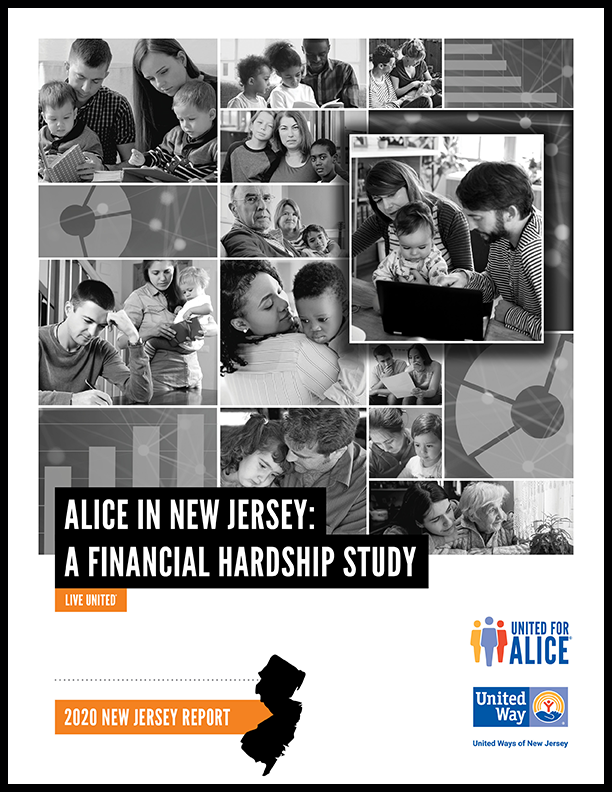2020 ALICE Report For New Jersey Released
- UnitedWayNNJ
- Dec 1, 2020
- 2 min read
Updated: Dec 3, 2020
Tuesday, December 1, 2020
Today, we release our new ALICE Report for New Jersey and more than ever, it’s a call to action.

The report reveals the number of ALICE households rose 41 percent between 2007 and 2018 — setting the stage for the widespread economic impact of the COVID-19 pandemic.
For more than a decade, our United Way has been sounding the alarm about the growing number of working households that were being priced out of survival, vulnerable to financial devastation with one emergency. This report, with its innovative new measure called the ALICE Essentials Index, details how inequities widened over the last decade.
The report shows ALICE households were locked out of the boom economy post-recession as the cost of basics rose at levels that outpaced meager pay raises, making it impossible to set aside savings for an emergency. A total of 1.2 million households or 37 percent were in financial distress in 2018.
On this Giving Tuesday, resolve to #ActForALICE. Help us help ALICE (Asset Limited, Income, Constrained, Employed) by:
Giving to support United Way. You can make your donation here. We are working toward a future where ALICE workers can afford to save for an emergency, access health care, and give their children the right start in life.
Sharing the report and its findings with your personal and professional networks. Access the report and check out our interactive graphics here.
Tagging @UnitedWayNNJ on the social media platform of your choice and telling us how you will #ActForALICE.
“No matter how hard ALICE families worked, the gap between their wages and the cost of basics just kept widening,” said United Way of Northern New Jersey CEO Kiran Handa Gaudioso. “These already stressed ALICE households are now facing an even deeper financial hole due to the state of emergency created by the COVID-19 pandemic.”
We invite every community member to join our ALICE coalition in saying: Going back to normal is not good enough. Normal means 37 percent of New Jersey households cannot afford the basics for survival. Normal is Black and Hispanic households shouldering a disproportionate share of financial hardship. Normal means the cost of basics rising at nearly twice the rate of inflation and outpacing wages. We must do better.
United Way is committed to this work because we believe that by securing racial and economic equity for ALICE, we can improve life for all in New Jersey.
Our challenge to each of you: How will you take action for ALICE?

Comments